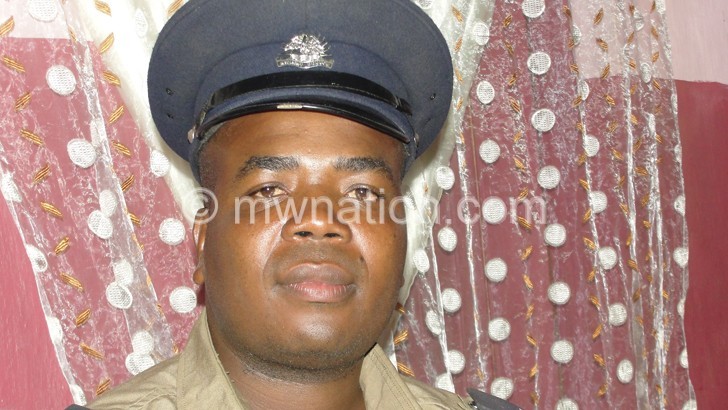No sign for Section 184 Penal Code review
Ishmael Chiwale and several of his customers were arrested at 1 am on June 11 2023 for idle and disorderly conduct.
On the day, police officers found him selling roasted chicken to imbibers outside a bar in Balaka.
“I have sold roasted chicken outside this bar for about two years, but was surprised with the arrest,” he said.
Chiwale lost his wares and merchandise to unknown people following the arrest.
He was released the following day on Monday after paying a K10 000 fine.

Herbert Supiliano, arrested alongside Chiwale, said he was not told why the police picked him when he was buying roasted chicken.
The two and others were arrested following a police sweeping exercise despite it being declared unconstitutional.
The arrests and subsequent charges were also made despite a High Court ruling declaring the entire Section 184 of the Penal Code unconstitutional on the basis that it is tailored to influence arbitrary arrests on assumptions of criminality.
Section 184 criminalises every suspected person who has no visible means of subsistence and cannot give a good account of himself or herself, including rogue and vagabond laws.
High Court Judge Zione Ntaba made the ruling in a judicial review case number 28 of 2018 of Henry Banda and two others versus the State.
The three challenged sweeping exercises that were declared unconstitutional.
Ntaba subsequently said the entire section should be reviewed and amended within 24 months from July 22 2022.
Ministries of Justice and Homeland Security and the Inspector General of Police, in collaboration with the Legislature through the Speaker of Parliament and relevant committees, were mandated to review and amend the entire section.
Reads part of the ruling: “If the Executive, Legislature and Judiciary continue to handle the vagrancy laws in the manner we have been doing, especially Section 184 of the Penal Code, the Judiciary will continue to deal with these matters either as criminal appeals or reviews or constitutional challenges, judicial reviews or false imprisonment claims, to mention a few.”
The Ministry of Homeland Security Principal Secretary (Legal) Steven Kayuni on Wednesday referred the matter to the Director of Public Prosecutions (DPP) Masauko Chamkakala as the custodian of the Penal Code.
But Chamkakala, in a brief response on Thursday, said: “Section 184 was not included in the 2023 Penal Code amendment. We plan to include it in the next cycle.”
This means review of the section will take place outside the two-year timeframe declared by the court; hence, the July 22 2024 deadline will not be met.
Parliamentary Committee on Legal Affairs chairperson Albert Mbawala on Wednesday said he was not aware of any plans regarding the Penal Code review.
The other declaration the court made was for the Ministry of Homeland Security and Inspector General of Police to review the training curriculum for police officers to ensure it covers constitutional fair rights issues, especially the right to be informed on the reasons for an arrest and how sweeping exercises can be conducted.
National Police spokesperson Peter Kalaya in a telephone interview last Thursday, said: “With that court ruling, we quickly reviewed and amended our guidelines on how we conduct various specific operations, including sweeping exercises.”
But Centre for Human Rights Education Advice and Assistance executive director Victor Mhango last Friday said the Ministry of Justice needs to prioritise review of the section.
He said: “We believe that government will not wilfully disobey the order of the court and will have to explain why the review failed within the period prescribed by the High Court.”
Malawi Law Society honorary secretary Gabriel Chembezi said he needed more time to consult before responding to our questionnaire on the implications of failure to honour the court’s declaration.
But Chembezi was yet to respond.






△ggongta.com△꽁타안전한 토토사이트 이용과 꽁머니는 꽁타! 구글에서 검색 꽁타